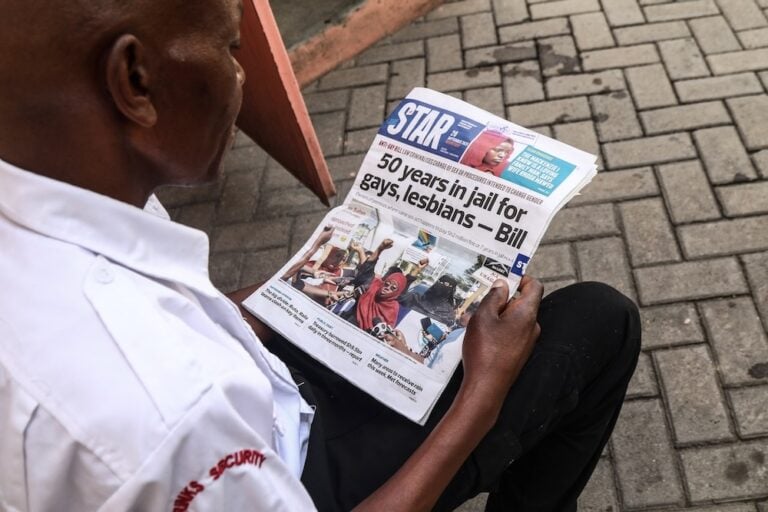In comments submitted to the UN Human Rights Council, ARTICLE 19 raised concerns about the failure of Kenya to respect and promote freedom of expression and freedom of information.
(ARTICLE 19/IFEX) – 5 November 2009 – ARTICLE 19 has raised concerns about the failure of the Government of Kenya to respect and promote freedom of expression and freedom of information. These issues were outlined in comments ARTICLE 19 submitted this week to the United Nations Human Rights Council (HRC), in preparation for its first Universal Periodic Review of Kenya in May 2010. According to ARTICLE 19, the Kenyan Constitution provides insufficient guarantees of freedom of expression and freedom of information within the current Kenyan Constitution.
The submission observes that there is no coherent media law in Kenya complying with international standards for freedom of expression. Instead, there is overly restrictive regulation of the media, which includes Government powers to ban publications, arrest vendors, search and seize broadcasting equipment and intercept communications. The Government can also arrest and detain journalists on grounds of “compromising public safety, public order, morality or internal defence” and can exert control over the journalistic profession.
“These restrictive laws have the potential to create a considerable ‘chilling effect’ on press freedom and are more reflective of Kenya’s oppressive colonial era than international human rights standards,” comments Henry Maina, ARTICLE 19 Director for Kenya.
ARTICLE 19 further condemns the continued existence of defamation in the country’s criminal code and the special protections afforded to the reputations of certain public officials. ARTICLE 19 is concerned about the maximum two years’ imprisonment for defamation and the fact that fines exceeding statutory minimums may be imposed.
ARTICLE 19 also examines the role played by the media in the 2007-2008 elections crisis. The submission notes that the media had censored their own coverage of the violence, possibly out of fear of exacerbating tensions, and that editors lacked oversight and experience in reporting conflict. ARTICLE 19 takes issue with the Government’s banning of live coverage of election violence at the time.
The submission provides examples of harassment, threats and attacks on journalists, which increased during the election period but were not confined to it. On some occasions, incidents appear to have been initiated by public authorities and this contributed significantly to the environment of self-censorship during this crisis.
The Universal Periodic Review is a process through which all United Nations member states review their human rights records every four years. ARTICLE 19 calls on the HRC to address the concerns raised in its submission and urges the Kenyan Government to use the UPR as an opportunity to bring their legislation and practice into line with international standards on freedom of expression and freedom of information.


